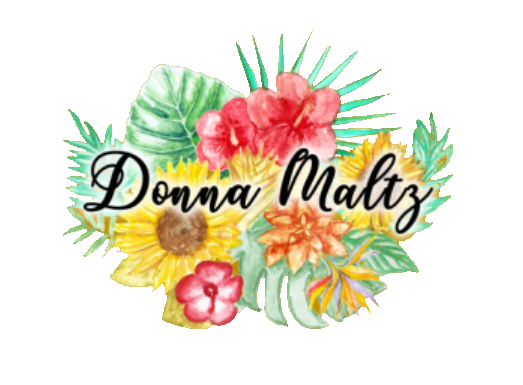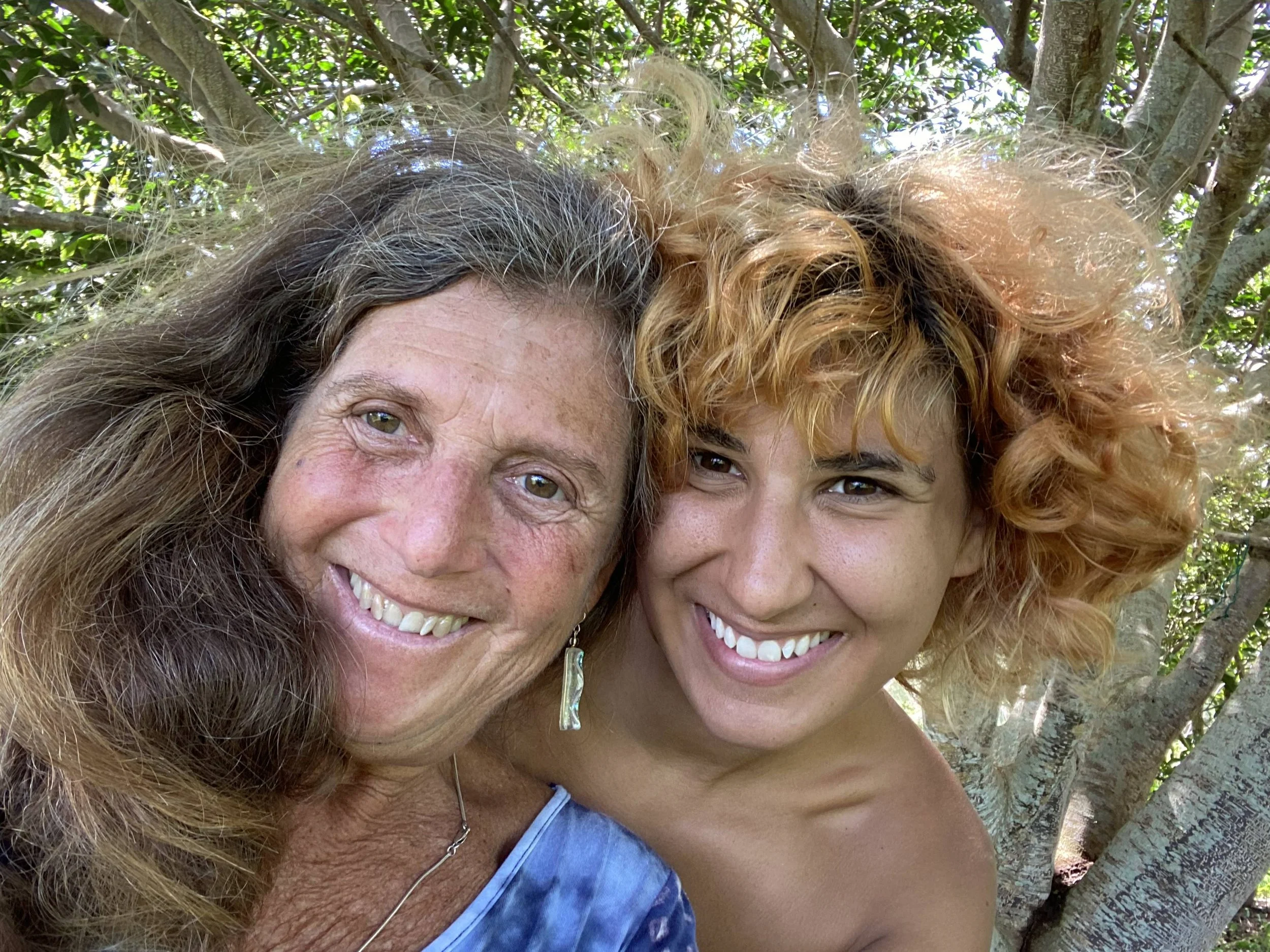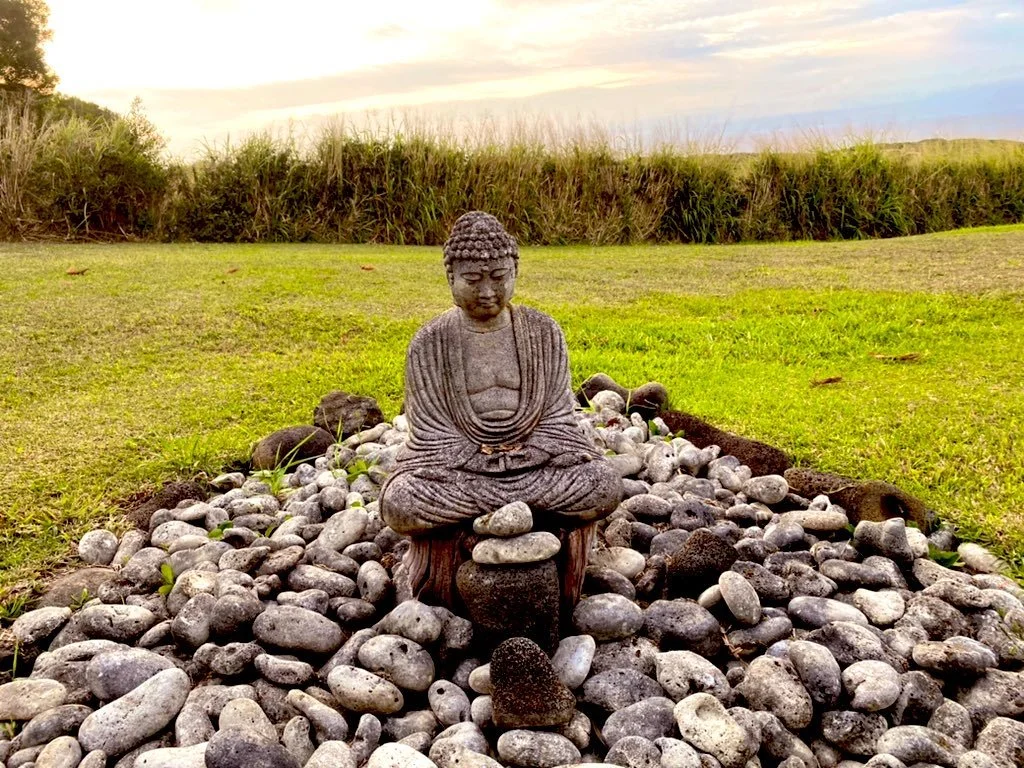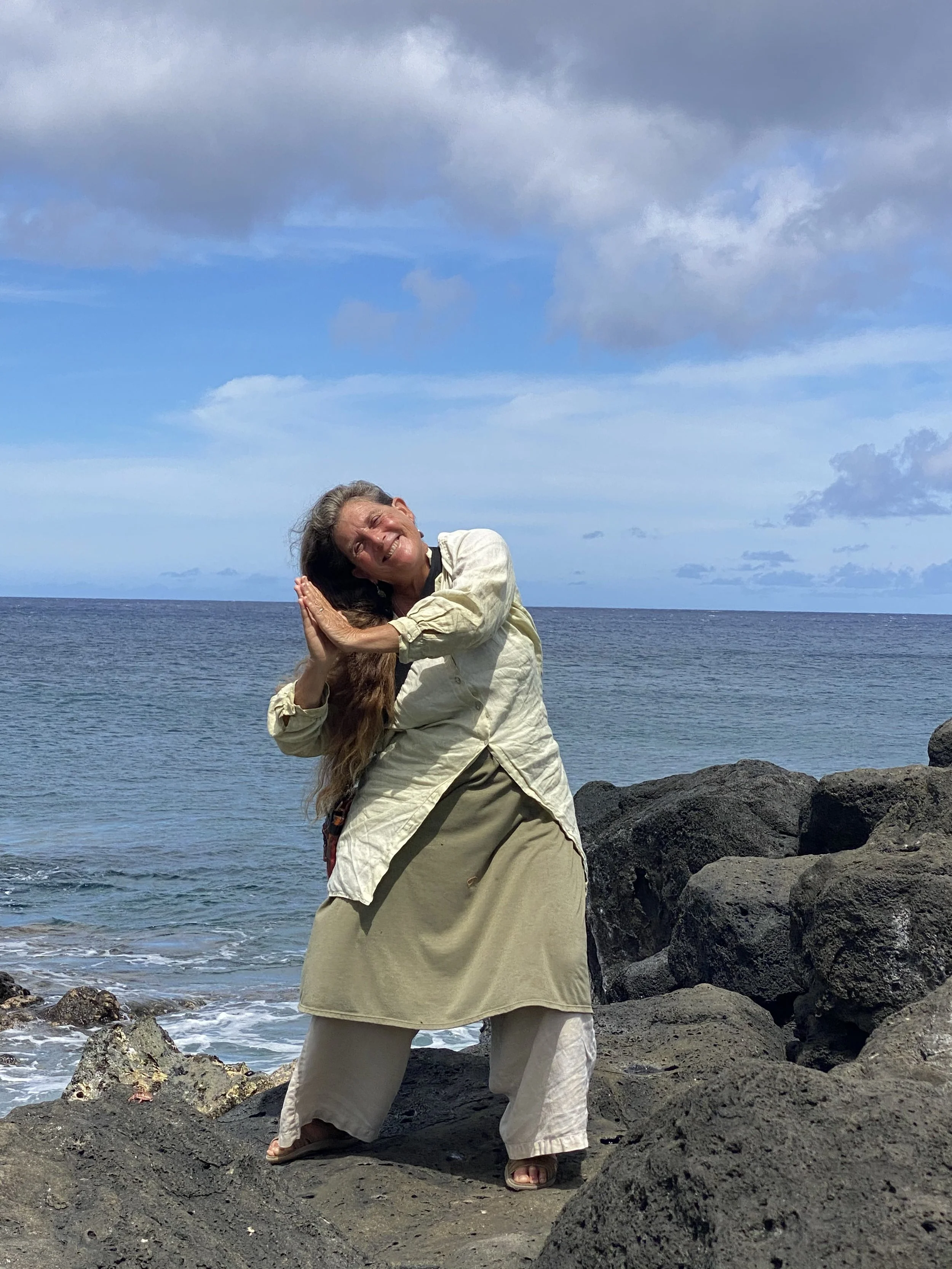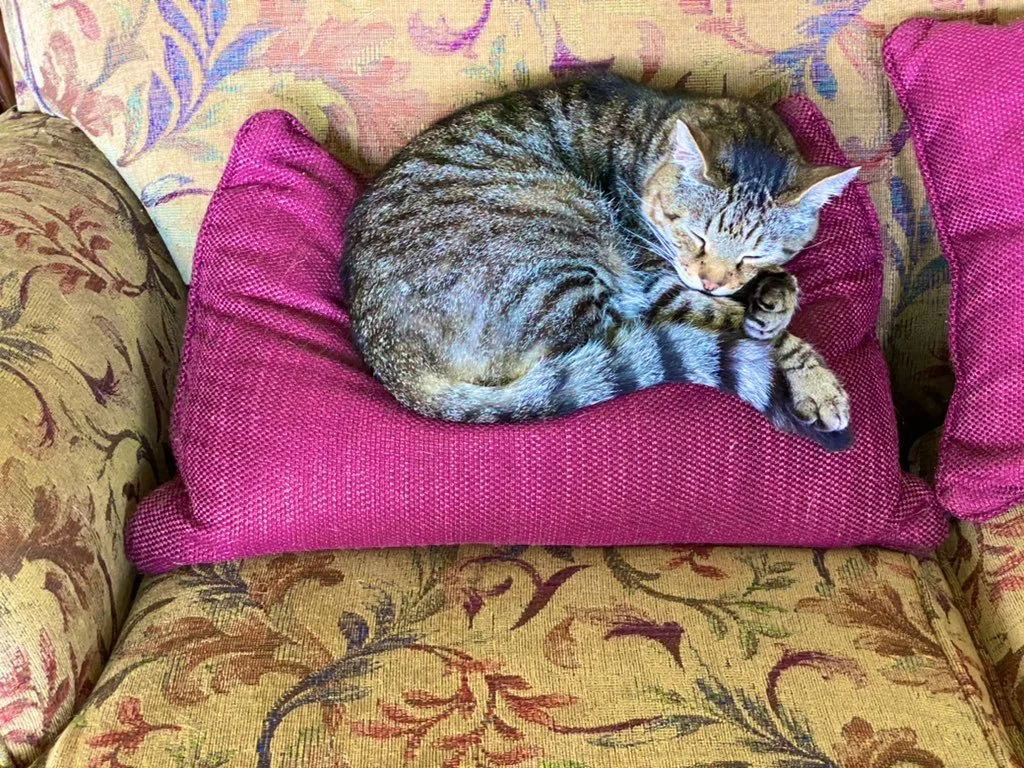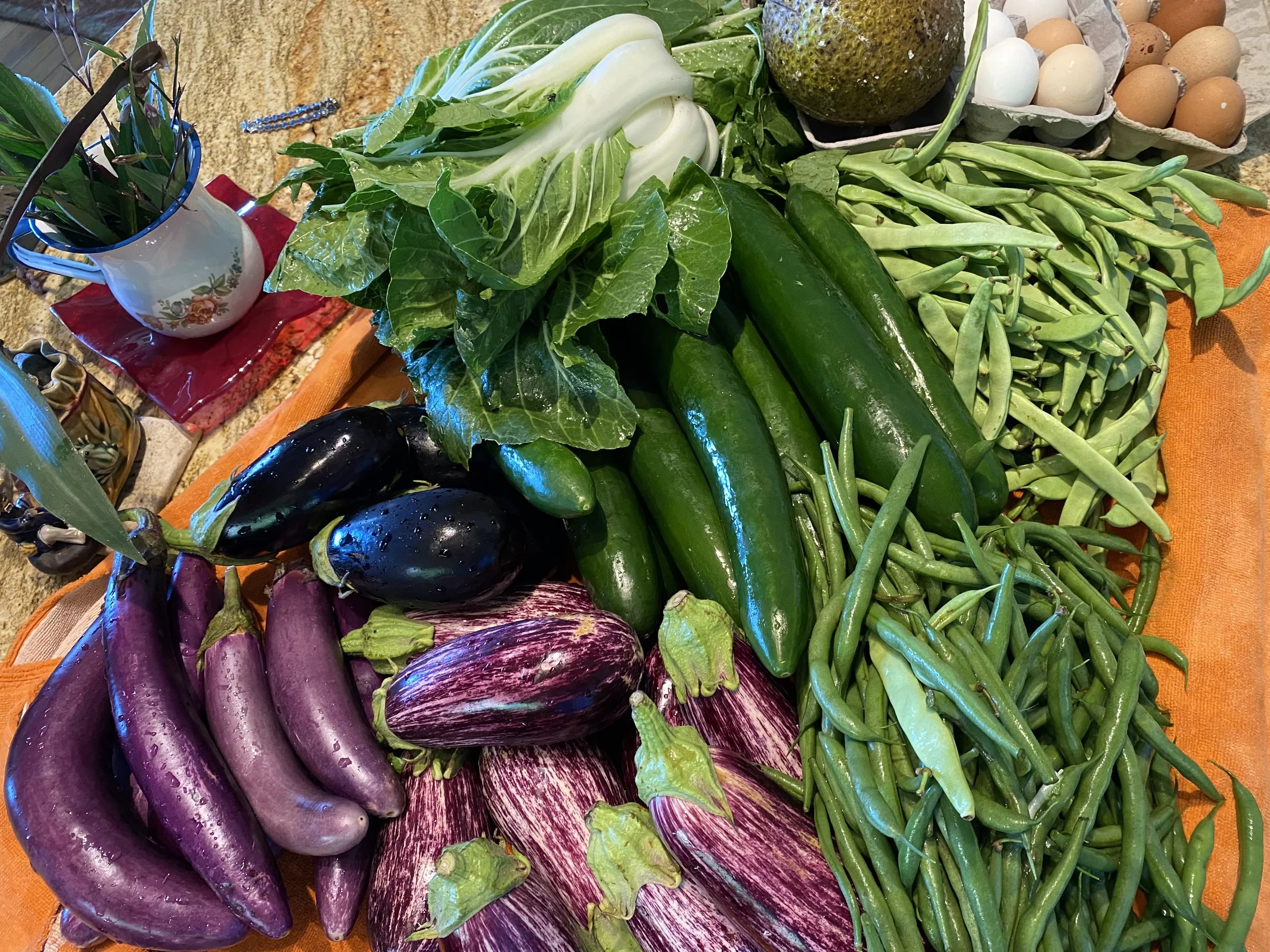🤟🏽Being an Empath, Is it a Blessing or a Curse?
Most of us feel empathy, but what does it mean to be an empath? An empath focuses on another’s emotions and can embrace that person’s perspective. They play an essential role in bridging gaps in relationships and bringing people together. We all feel empathy on some level, whether it be pain or joy, but empaths are hypersensitive. Emotions become heightened when they are at a funeral, a birth, a wedding, a graduation, or at any kind of large gathering.
Are you an empath? If so, how do you fare on a daily basis? Are you an emotional sponge, experience empathy keenly, and are hyper absorptive of others' emotions? Maybe you have been identified as an over-sensitive person, telepathic or psychic, but perhaps it’s as simple as realizing you are an empath and learning to use it to your advantage.
The term “empath” comes from the word “empathy,” which means being able to understand how other people feel. Empaths have a unique ability to nurture others, even if they’ve never experienced that person’s pain or agony themselves. The difference between feeling empathy and being an empath is they go beyond having compassion and can feel what the other person is experiencing.
Since I can remember, I have been an extrovert and an empath. I try to be always present, making me overly sensitive to other people's energy. I learned the hard way that it can have a devastating effect on my health if I didn’t process those intuitive, intense feelings in the right way.
““I am an empowered empath” is not just a mantra, but also what the world needs right now.””
When I come into contact with people, I can feel them energetically. I absorb their fear or tears, experience their sorrow and grief, as well as their joy and elation. I can read a room full of people from cover to cover and know whether it will be a thriller or romance or something in between. Negative or positive energy is heightened in a crowd. It can draw you in or spit you out. Does this sound familiar to you?
Being an empath is serving with compassion, but it takes protecting yourself from energy vampires as well. A skilled therapist (who is not necessarily an empath) can show great empathy for a patient, while at the same time challenging their reality, and offer compassion and solutions for their anguish. If you do not have the skills to take on others' distress, offer to find them help rather than take on the burden yourself.
We can learn skills and have the right tools to protect ourselves, but first, we must recognize why they are considered skills and give ourselves credit for learning and applying them in our lives. If you are an empath, and not a trained mental health therapist, and let energy vampires suck out your life, you can end up at the mercy of pharmaceutical drugs or get admitted to the loony bin.
Empathy is another word for being sensitive, intuitive, and compassionate. Empaths do not have the same filters or defenses as others. They are often misunderstood and will take on the world's anxiety, creating physical discomfort and social anxiety for themselves.
The highest value we can hold for ourselves is empathy, but understanding how to be discerning is the distinction. Empathy is a form of emotional intelligence (EI). It is the ability to appreciate others' suffering and not suffer ourselves. Heart and mind connections are essential for our well-being but they can be challenging.
COVID lockdowns have shed an intense emotional light on all of us either heightening our empathic side or dulling us down. Close quarters, mental challenges, and hours of confinement have opened doors for more empathy, or for some, bury their burdens. Being overmedicated or hiding our emotions with some form of substance abuse is detrimental to our physical and mental wellbeing.
Are you an Empath?
Do you have strong intuitions? Do you sometimes feel inadequate, insecure, or have trouble fitting in? Are you shy, introverted, overly sensitive, easily overwhelmed, and battle self-doubt? Do you avoid conflict, feel uncomfortable in crowds, feel isolated, need extra rest, or have boundary issues? Do you love Nature and animals, care deeply about the planet and humankind, want to solve problems, and have a unique view that is often misunderstood? Do you have significant empathy for others and the world at large? All these are signs you are empathic with incredible gifts that have been undervalued or overlooked.
What does it mean to be an empath?
We must realize that an empath’s sensibility does not have an on-off switch. Empaths are wired differently than others, so part of being an empath is to understand people's limitations and hold a deep well of kindness that they can pull from.
Empaths have been dismissed as being insecure and weak. In actuality, every receptor in their hearts and minds is open and ready to solve problems and ease another’s pain. Over sensory stimulation is a sign of intuitive power. It is a gift that, when used properly, can ease burdens, create safe places, rekindle joy, shine a healing light on relationship dramas, and so much more.
Why being an empath can be a blessing or a curse:
There can be adverse side effects of being an empath. When you can sense the emotional and physical stress of others, it can be overwhelming and stressful, affecting your physical and mental health.
A medical doctor will not ask you if you are an empath, and yet, according to many studies, fatigue, exhaustion, anxiety, panic attacks, ulcers, allergies, and autoimmune diseases are common among empaths who are not sympathetic to their own needs. They also can experience increased heart rates and chronic headaches. These symptoms appear when empaths internalize the feelings and pain of others without distinguishing these emotions from their own.
It is vital to understand that being an empath is not all sunshine and roses. If you think you might be an empath or you know you are one, immediately start a self-care empathic journey and stick with it. When you're burned out or depressed, you lose your ability to help others.
“I am an empath” can be like saying “I am an addict.” There is a dangerous relationship between being an empath and addiction. Why are empaths so susceptible to alcohol, drugs, sex, food, gambling, shopping, or other addictions? It is because they can be misunderstood and alienated for being perceptive, compassionate, and speaking their minds. It's often easier to turn to substance abuse to fill the empty void.
It is essential to understand how to use empathic - intuitive tools to protect and temper ourselves. Doctors will recommend drugs to numb us from intense feelings when what we really need is downtime, time in Nature, alone time, time with our animals, time for self-care, time to just be and breathe, and acknowledge it’s okay to feel how we feel.
10 Essential Tools for empathies to thrive
1. Have empathy for yourself
Empaths often have trouble distinguishing between someone else's discomfort and their own. It is vital to know who you are, what you love to do, and engage in your purposeful why.
Depression and anxiety come from a lack of empathy for ourselves. Having compassion for ourselves means taking care of ourselves. The kinder we are to ourselves, the more understanding we can have for others and the world. It means being truthful, accepting and appreciating our gifts, and sharing them freely. Spreading heart energy energizes us. A hug, a smile, and an acknowledgment are all it takes to bring joy. Know your value, know your truth, and follow your heart. Listen to your inner voice and act on your gut feelings.
2. Compost what does not serve you and nurture what does.
Our lives become more blissful when we surround ourselves with the right people and ecosystems that rejuvenate us and we let go of what does not serve us. This is when the feel-good hormones get activated, invigorated, and come to life. Hormones such as endorphins and serotonin boost our brain activity, cushion emotional pain and allow us to rest and rejuvenate. When we surrender to our good intentions as empaths, we protect ourselves from energy vampires and can cope better in unexpected situations. We can have more fun and accept our success with grace and not have inflated egos. Life becomes easier when we let go of what does not serve us.
3. Creating pillows instead of walls. Healthy boundaries.
Absorbing low vibrations can bring us down. Like attracts like, so if we are feeling low vibes we can attract low vibe people. How do we not absorb those low blows and bad vibes? Rather than building walls and creating barriers and limitations, I prefer creating pillows instead. Pillows are light and easy to move. You can change colors and sizes, and when you get angry or feel playful, a pillow fight absorbs low-level blows without being blown away. You can move pillows around of your own free will. Pillows are a reminder to be gentle with yourself and others.
When we get sucked into a low vibration situation, we can ground ourselves, meditate, and raise our vibrations. Then, once raised, we envision how we want the interaction to be and decide who we are going to be during the time together.
It is always a good idea to take a minute to breathe. And if things are too intense, don’t respond at all. Take a time out so you can come back and be helpful and positive.
4. Observe rather than absorb the energy.
When a child gets a booboo, a parent's instinct is to kiss it and put on a Bandaid to make it feel better. But when it comes to dealing with others' emotional trauma, most people are looking for an ear or a shoulder to cry on rather than a quick fix and a kiss.
As empaths, we want to fix things, but just being present is the best thing you can do. Hold a safe space for others rather than absorb their pain. Helping means being centered and confident, rather than being codependent and immersing in the other’s agony. Knowing how to hold space for people rather than trying to fix them makes a tremendous difference. We can not take the pain away, but we can help just by listening and validating their feelings.
5. Don't look for suffering. Avoid it.
Empaths are always on the lookout to serve others and make things better. They sense those emotions that trigger physical symptoms. With that comes extra joy as well as extra suffering. When you are an empath, you pick up on even strangers' sufferings. Energetically, it can be very draining. Like a dry sponge in a full sink, you can get saturated and ineffective trying to wipe up their mess.
This is when you bring in the tool for protecting your energy so you do not absorb others' physical or emotional pain. You can still sense the pain, just prevent it from piercing your energetic field.
Blamers are complainers and drainers.
Separate yourself from narcissists. Narcissists are about control and power and the exact opposite of empaths.
What makes empaths happy is compassion, love, and connection.
6. Know your tolerance level to lower the chance of burnout.
A racing heart, panic attacks, and reaching for addictive substances are often symptoms of an empath not being aware of their gifts and racing to the burnout finish line. It's not your job to take on other people's suffering. People don't actually want you to feel their pain. What they usually want is to be validated. You don’t do anyone any good by destroying yourself, so notice, learn, and pull back.
The best way to help someone, especially a loved one who you can not reach, is to find a professional who can. They may find out that they are unrealized empaths waiting to come out and make a difference in their lives. Once they realize this is a gift, they can learn the tools to navigate a wholesome life independent of judgment and holding onto the aliments of an undiagnosed empath.
Creative outlets reinforce empathic tendencies and are mediums for sharing emotions and compassion. Writers, artists, musicians, and other creatives help by sharing their intuitive outlets without absorbing negativity. Most of the best songs, poems, and paintings exude empathy.
7. Refuel with plenty of time in Nature.
We are Nature, so when we are present in Nature, we find a deep connection with our core being. The more time we spend in Nature, the more empathy we have for the world's suffering. We find solace and solutions by observing the systems and cycles of Nature. Mother Earth is our most outstanding teacher showing us how our instincts can save lifekind.
8. Spend time with Animals.
Empaths share an unconditional and loving bond with animals. Like having a 6th sense, the relationship is intuitive and primal. After all, humans are animals. We are Nature. We have lost connection to our own species due to artificial stimulation - virtual reality - which takes us further away from our true selves. Empaths animalize more, using their instincts to decide and act rather than react to a situation. Caring for a pet, whether it be a mouse, dog, cat, snake, or horse benefits us just as much when we pay attention to their needs.
9. Avoid the media, including social media.
All news, even positive news is a linear perspective that interferes with our connection to source energy. Empaths are hypersensitive to all stimulation, both negative and positive. Stay in your empathic mindset by sharing positivity and avoiding any stimulations that interfere with your goodness.
10. Eat like your life depends on it because it does.
Empaths are naturally hypersensitive to everything. This includes food. We know that food affects our mood, so eating a grounded, healthy diet helps us to stay open. Feeding our body and our soul's positivity fuels good intentions. It is a significant part of the self-care regime, along with a good night's sleep, meditation, and spending quality time in Nature with loving, empathic people, including our pets.
In summary:
The bottom line to happiness is to know who you are, what you love to do, and follow your purposeful why. Empaths are sensitive, compassionate humans who absorb other people's emotions and environmental stressors. If they do not know how to protect themselves, burnout, addiction, physical illnesses, and unhappiness become symptoms of good intentions gone wrong.
Being able to feel deeply, have compassion, love and understanding, are human traits the world needs. If you are an empath, be grateful for your gift. Share your insights by being a genuinely caring person. Protect your energy by using the tools above and share them with others struggling to become a shining light in the world. Eat well, sleep enough, and take the time for ME time.
Healthy empaths have healthy boundaries (pillows) and incorporate creative ways to keep others from piercing their own emotional space and draining their energy.
“Life is a series of natural and spontaneous changes. Don’t resist them — that only creates sorrow.”
🥰 A Dose of Positivity
Join us for a weekly uplifting discussion every Thursday at 1 pm Hawaii time, 4 pm PST, 7 pm EST.
This week, we'll talk about how being an Empath affects our Health 🙌
Tina Hull is a Restorative Health Guide, Mindset Coach and Akashic Records Consultant.
She helps women release and heal emotional wounds without having to relive them so that they are happy and connected to who they are meant to be. She does this using her signature Method called Infinitely YOU!
Connect with Tina:
Free Gift: https://www.facebook.com/1827505129/videos/416012700189294/
Free Facebook Group: https://www.facebook.com/groups/healingempaths
Website: http://www.tinas-massageclinic.com
Facebook: https://www.facebook.com/tinasclinic
LinkedIn: https://www.linkedin.com/in/tinaahull
Instagram: https://www.instagram.com/nevisiangirl/
Are you a change maker, thought leader, or health and wellness professional? I would love to interview you in one of our episodes! 🌈
Join our uplifting Facebook Group for A Daily Dose of Positivity. Contribute your positive vibration and receive from others. 💕
Need some Mama Donna love? 🥰
Book a free discovery call ✨
